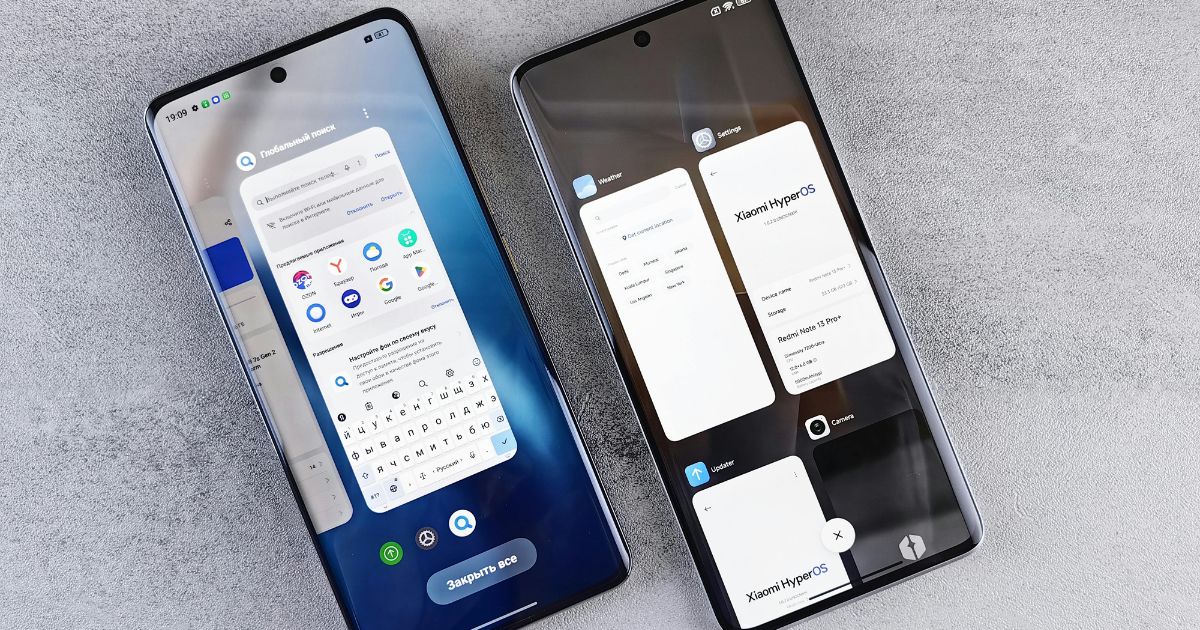Scalability plays a crucial role in determining the longevity and success of your app. Whether you're launching a new startup or expanding your existing business, designing and developing a scalable application is essential for accommodating growth, meeting user demands, and staying competitive in the market.
In this article, we'll explore key strategies, best practices, and considerations to ensure you design and develop a scalable application that can evolve with your business needs and handle increased workload and user traffic.
What is App Scalability?
Application scalability refers to the ability of a software application to handle increasing amounts of work or growing demands without sacrificing performance. In essence, it's about designing and developing systems in a way that allows them to grow smoothly as the workload or user base expands.
Scalability ensures that an application can effectively accommodate higher levels of traffic, data, or transactions without experiencing significant slowdowns or failures. It's not just about adding more servers or resources, but it’s also about architecting the application in a manner that allows it to distribute and manage workloads efficiently across various components.
Ultimately, scalable applications can adapt to changing needs and maintain a high level of performance even under heavy usage, providing a seamless user experience without compromising reliability.
Types of Application Scalability
There are two main types of application scalability that you should pay attention to when designing and developing an app.
1. Horizontal scalability
Also known as scale-out, horizontal scalability involves adding more machines or instances to your application's infrastructure to handle increased load. This approach distributes the workload across multiple servers, allowing for better resource utilization and improved fault tolerance.
Horizontal scalability is typically achieved through techniques like load balancing and distributed computing, where requests are spread across multiple servers to prevent any single point of failure. It offers flexibility and cost-effectiveness since you can scale by adding relatively inexpensive commodity hardware as needed.
2. Vertical scalability
Also referred to as scale-up, vertical scalability involves increasing the resources of individual servers to handle more load. This approach typically involves upgrading hardware components like CPU, RAM, or storage to support higher performance levels.
While vertical scalability can provide a straightforward solution, it may encounter limitations regarding the maximum capacity of a single server and can be more expensive than horizontal scaling due to the cost of high-end hardware upgrades.
Benefits of App Scalability
Scalability in application development offers a plethora of benefits that contribute to the success and sustainability of your product
- Improved user experience: scaling applications ensures a seamless user experience, irrespective of user load. The speed of app functionality significantly impacts user satisfaction. Studies show that a mere three-second delay can lead to over 50% of users abandoning the app or website. By optimizing scalability, you enhance performance, keeping users engaged and satisfied.
- Leveraging high traffic periods: scalable apps empower you to capitalize on peak traffic periods, like holidays or promotional events. Without scalability, increased traffic could overwhelm your app, leading to crashes or slowdowns, tarnishing your brand's reputation and impacting potential revenue. By scaling efficiently, you can smoothly handle surges in usage, seize opportunities for conversion, and boost revenue.
- Cost savings on post-launch maintenance: while investing in scalability upfront may incur initial expenses, it ultimately reduces long-term maintenance costs. Scaling your app from the outset minimizes the need for extensive post-launch fixes and optimizations. By laying a robust scalability foundation early, you save resources that would otherwise be spent on troubleshooting and retrofitting for scalability later.
- Enhanced user feedback and engagement: prioritizing scalability ensures your app functions optimally, fostering positive user experiences and garnering favorable feedback. A well-performing app with minimal disruptions attracts more users and encourages engagement. By delivering a reliable and high-performing product, you cultivate a loyal user base, driving organic growth and amplifying user recommendations.
- Increased profit margins: scalability directly impacts revenue by facilitating increased downloads and user engagement. A scalable app, capable of accommodating growing user bases seamlessly, attracts more users and encourages repeat usage. Positive user experiences translate into higher user retention rates, driving recommendations and expanding your user base. Investing in scalability upfront optimizes revenue potential, avoiding costly scalability overhauls further on in the development cycle.
Effective Application Scalability Techniques
Employing scalability in application development involves implementing various techniques to ensure your app can handle increased workload and user demand efficiently. Here's an overview of these techniques:
Understand Your App's Infrastructure
Before scaling your app, gain a deep understanding of its infrastructure and identify potential performance bottlenecks. Devise a scaling plan that aligns with your app's architecture, choosing between horizontal, vertical, or hybrid scaling approaches based on your needs. Test the application thoroughly during the scaling process to anticipate and mitigate latency issues.
Cloud-Based Hosting
Opt for cloud-based servers and hosting services instead of physical servers. Cloud platforms offer scalability and flexibility, allowing you to adjust resources dynamically based on demand.
By leveraging cloud infrastructure from the beginning, you simplify the scaling process and enhance reliability.
Implement Caching
Utilize caching to store frequently accessed data and improve response times. Caching reduces the load on your system's resources, preventing delays and downtime associated with system overload. By delivering faster responses to user requests, caching enhances the overall user experience and encourages user retention.
Take Advantage of CDNs
Content delivery networks (CDNs) accelerate content delivery by using multiple servers distributed globally. CDNs reduce app response times by serving content from the nearest server to the user, enhancing user experience, particularly for geographically dispersed audiences.
Choose Performance-Oriented Libraries and Frameworks
Select high-performance libraries and frameworks optimized for scalability. Prioritize libraries and packages that offer efficient resource utilization and scalability features to build a robust and scalable app from the outset.
Select the Right Framework and Host
Consider development technologies and hosting providers that support scalability. Research and choose frameworks known for their scalability potential, such as Node.js and Angular. Select hosting providers with scalable infrastructure and robust support for your application's requirements.
Maintain Clean Code
Ensure your codebase is well-organized and follows best practices for scalability. Separate frontend and backend layers, modularize code, and adhere to design patterns to facilitate scalability and maintainability. Clean code simplifies the scaling process and reduces the risk of scalability issues down the line.
Fundamental Design Principles Behind a Scalable Application
When collaborating with your app designer, it's essential to consider several key factors to ensure the development of a scalable application that meets your needs and objectives. Here's a comprehensive checklist of questions to ask your app designer.
- Future-proofing strategies: enquire about the designer's approach to future-proofing the app architecture. Ask how they anticipate technological advancements and evolving user needs to ensure the app remains scalable and adaptable in the long term.
- Scalability documentation: discuss the importance of comprehensive documentation for scalability features and considerations. Find out whether the designer provides detailed documentation outlining scalability strategies, implementation details, and maintenance procedures for future reference.
- Scalability consulting: ask whether the designer offers scalability consulting services beyond the initial app design phase. Check their availability for ongoing scalability assessments, recommendations, and optimizations to support the app's growth and evolution.
- User feedback integration: discuss the role of user feedback in informing scalability decisions. Inquire how the designer incorporates user feedback into scalability planning, prioritizing features and enhancements based on user needs and preferences.
- Scalability workshops or training: investigate whether the designer offers scalability workshops or training sessions for your development team. Discuss the benefits of educating team members on scalability principles, best practices, and tools to empower them to contribute effectively to scalability efforts.
- Scalability performance benchmarks: ask about the designer's approach to establishing scalability performance benchmarks. Find out how they define scalability goals, measure performance metrics, and track progress towards scalability objectives throughout the development life cycle.
- Scalability review process: discuss the importance of regular scalability reviews during the app development process. Inquire whether the designer conducts periodic scalability assessments to identify potential bottlenecks, optimize performance, and refine scalability strategies as needed.
- Scalability budget allocation: inquire about the allocation of resources and budget for scalability initiatives. Discuss the importance of investing in scalability from the outset and ensuring sufficient resources are allocated to support scalability efforts throughout the app's lifecycle.
- Scalability assurance mechanisms: ask about the designer's mechanisms for ensuring scalability assurance. Inquire whether they conduct thorough testing, performance profiling, and scalability simulations to validate scalability features and identify areas for improvement.
- Scalability collaboration tools: discuss the use of collaboration tools and platforms to facilitate communication and coordination on scalability initiatives. Inquire whether the designer utilizes project management tools, version control systems, and collaboration platforms to streamline scalability efforts and foster collaboration among team members.
Fundamental Development Principles Behind Application Scalability
Here's a list of key factors to consider when choosing and working with your app developer to ensure scalability, along with questions to ask your developer or development company:
- Scalability expertise: inquire about the developer's experience and expertise in developing scalable applications. Ask about their track record of building apps that can handle increasing user loads and growing data volumes.
- Technology stack selection: discuss the developer's approach to selecting the technology stack for your app. Inquire whether they consider scalability factors such as performance, scalability potential, and compatibility with future enhancements when choosing programming languages, frameworks, and databases.
- Scalability testing: ask about the developer's testing methodologies for ensuring scalability. Inquire whether they conduct performance testing, load testing, and stress testing to assess how the app performs under various levels of user demand and identify scalability bottlenecks.
- Scalability planning: inquire about the developer's scalability planning process. Ask whether they develop a comprehensive scalability plan that outlines strategies for horizontal scaling, vertical scaling, or hybrid scaling based on your app's specific requirements and anticipated growth.
- Scalability documentation: discuss the importance of scalability documentation for future reference. Find out whether the developer provides detailed documentation on scalability features, architecture decisions, and scalability best practices to support ongoing maintenance and enhancements.
- Scalability optimization techniques: ask about the developer's strategies for optimizing scalability. This should include whether they implement techniques such as caching, asynchronous processing, and distributed computing to improve app performance and scalability.
- Scalability monitoring and analytics: inquire about the developer's approach to monitoring app performance and scalability in real-time. Ask whether they integrate monitoring tools and analytics platforms to track key performance metrics, detect scalability issues, and make data-driven optimizations.
- Scalability support and maintenance: discuss the developer's commitment to provide ongoing scalability support and maintenance. Do they offer scalability consulting services, regular performance audits, and proactive scalability enhancements to ensure your app remains scalable as user demand grows?
- Scalability budget allocation: ask about the allocation of resources and budget for scalability initiatives. Will the developer allocate sufficient resources for scalability testing, optimization, and ongoing maintenance to ensure your app can scale efficiently without compromising performance?
- Scalability collaboration and communication: discuss the developer's communication and collaboration practices regarding scalability initiatives. Ask them if they provide regular updates, transparent communication, and collaboration opportunities to involve stakeholders in scalability decision-making and planning.
Final Thoughts on How to Designs Scalable Applications
Designing a scalable application is essential for long-term success in the competitive app market. At AppIt, we emphasize the importance of strategic decisions, such as selecting the right hosting provider, choosing scalable frameworks, and maintaining clean, modular code. By following these principles, you can create an app that not only meets current user demands but also adapts seamlessly to future growth. A scalable app not only improves user experience but also enables you to handle high-traffic periods and capitalize on opportunities for increased profit.
If you have any further questions about scalability, feel free to book consultation with one of our experts and let us help you build a scalable app that drives business growth.








